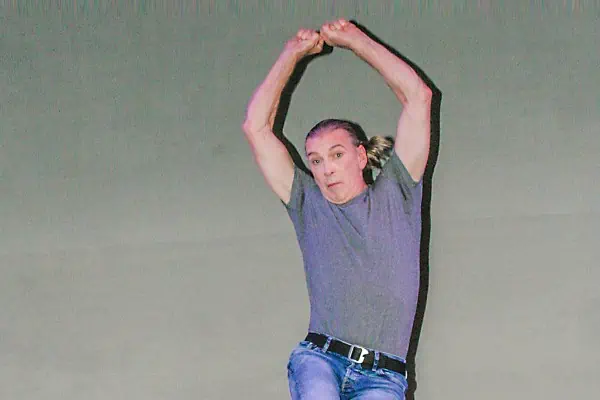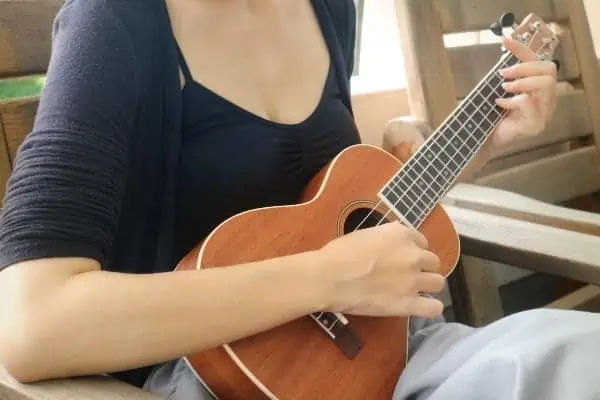For Russell Braun, the accompanist’s role is not to play second fiddle. Figuratively or literally.
The Frankfurt-born lyric baritone will share the Yukon Arts Centre stage this Sunday with his favourite accompanist -– and his wife – pianist Carolyn Maule.
“We’re both soloists,” Braun stresses. “It’s like a marriage, you know. You don’t become one, actually. You become two that fit very, very well together.”
The same principle applies on stage, he says.
“If your goal is to become one, I think it’s a pity, because then you lose the sort of quality that Carolyn has, mixed with the quality that I have, hopefully, to shed light from different angles on the piece.”
As if to underscore the point, both performers participate equally in a video call from a spare room in their home near Toronto. The Hallowe’en candy their two sons collected a few nights before is heaped on a bed behind them.
Here’s part of that conversation:
KB: How do you deal with the misconception that the accompanist is there to provide more bulk to the musical content, or help the soloist stay in key and on tempo?
RB: I think someone who comes to a concert with a completely open mind will be more likely to accept us both as equal partners than someone who’s been listening to recordings of Pavarotti, or all their life has only focused on the voice. Very often there will be someone who only wants to talk to Carolyn afterward … they’re particularly drawn to that part of the story, in a sense.
CM: One of the things that draws people to the singer is that they’re facing the audience, so they’re directly engaging with the audience, and that gives more of a sense that, “Hey, he’s talking to me.” But there are more and more people who also see it as a partnership, that the music is one whole piece. It’s important to realize it was all inspired by the poetry … but Schubert or Wolf or Fauré, or whoever, set that poetry as not just a melody, but with all the colours that are in the accompaniment as well.
KB: Russell, you’re out there naked, facing the audience. What does it mean to know there is someone who loves you, who knows your weaknesses and is there to help you absolutely shine?
RB: That knowledge is there subconsciously, but when I’m up there I want Carolyn to do her best, and I love the feeling when Carolyn urges me to do my best as well. Our relationship, how we care for one another and support one another, this can’t be denied. But I think, in the end, for both of us to be professional and dedicated, that’s the most important thing.
KB: How do you prevent the little concerns about who forgot to take out the garbage, or whose turn it is to pick up the kids, from showing up in the rehearsal hall, or even on stage?
CM: It can sometimes be an underlying current that, unless you’re able to name it, you can’t set it aside. It’s present. We do have a tendency to be harder on each other than we are on anyone else. There’s an expectation we both have of each other. That has its pluses and minuses. It can make the rehearsal a little bit frustrating, but in the end it sparks us to a much greater end product, because we don’t go a split second without striving for our best.
KB: But it couldn’t happen without that level of trust having been established?
RB: That’s absolutely true. It goes beyond that as well. If I happen to be in a situation where I work with a pianist I’ve never worked with before, I can much more easily decide I don’t want to work with this guy any more if it was not satisfying. We do have to go a step further. The great thing is that I have not worked with a better vocal accompanist than Carolyn. I have not. And I’m not just saying that to make the next few days better.
Braun aims a boyish grin toward his wife, who responds by rubbing his shoulder affectionately. They laugh in harmony.
Braun and Maule are both from musical families. His father was legendary Canadian baritone Victor Braun, his mother was a professional mezzo-soprano and his sister Adi is enjoying a successful jazz career.
Maule’s parents were instrumental in founding an annual chamber music festival in her hometown of Parry Sound, along with conductor Anton Kuerti, who remains a family friend.
It was music that brought them together as University of Toronto students, when they were paired for a piano-voice class. “I actually remember the first Schubert song, although we’re in disagreement as to which one it was,” Maule laughs.
The conversation about their collaboration as singer and pianist returns to poetry and the musical colours it inspires.
“The poetry is where it all really begins,” Braun says. “Carolyn doesn’t have the poetry to help her directly, like I do, but our goal is to tell the story in the way that the composer and poet intended.”
Are there parts of his extensive repertoire Braun would consider performing unaccompanied?
“None,” he replies quickly, in precise syllables with a hint of accent from having spent his first 17 years in Germany.
“What I would feel comfortable doing is to recite the poetry, because I absolutely love language. If you pronounce the language correctly, then your technique is locked into the consonants having the right emphasis.”
He demonstrates by saying the word “dissect” with the cold precision of a scalpel. The word “sigh” emerges as a warm spring zephyr.
“All these words, if you pronounce them correctly, they are full of meaning. I think if you recite the text in a beautiful way, then you deliver it with meaning, and then the audience can come up with their own interpretation.”
Local concert-goers can do so at 7:30 pm this Sunday, November 14, when Braun and Maule perform together as part of the Whitehorse Concert series. Tickets are available from Arts Underground or the Yukon Arts Centre.




